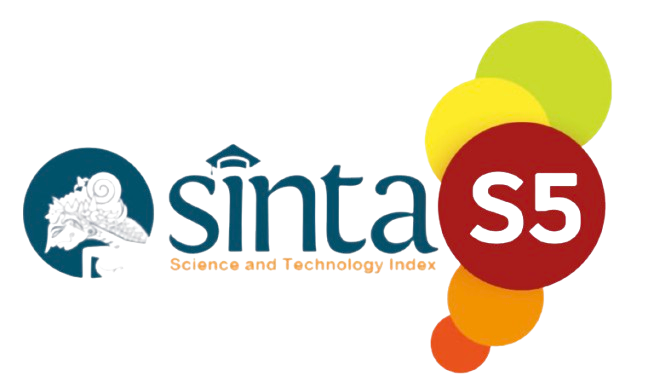Exploring English Education Students’ Self-Efficacy in Utilizing AI Tools for Language Learning
DOI:
https://doi.org/10.52217/d6t5r589Keywords:
AI tools, English Education, Language learning, Self-efficacy, Thematic analysisAbstract
This study explores English Education students’ self-efficacy in utilizing Artificial Intelligence (AI) tools for language learning within the Indonesian higher education context. A sequential explanatory mixed-method design was employed. In the first phase, a quantitative descriptive survey was administered to 100 English Education students using an adapted version of the Teacher Artificial Intelligence Competence Self-efficacy (TAICS) scale. The instrument consisted of twenty items covering six constructs: AI Knowledge, AI Pedagogy, AI Assessment, AI Ethics, Human-Centred Education, and Professional Engagement. Descriptive statistical analysis revealed that students’ overall self-efficacy was at a moderate level (M = 3.53), with the highest confidence observed in AI Knowledge and AI Pedagogy, while AI Ethics and Professional Engagement scored lowest. In the second phase, qualitative data were collected through semi-structured interviews with a purposive sub-sample of fifteen students and analyzed thematically. Five themes emerged: mastery experiences, vicarious experiences, social persuasion, ethical awareness, and affective states. These themes reflected the sources of self-efficacy proposed by Bandura and explained variations in students’ confidence. The findings indicate that students are generally prepared to integrate AI tools for learning and future teaching, yet gaps remain in ethical confidence and professional engagement. The study suggests that teacher education programs should provide structured training, reflective practices, and ethical guidance to strengthen responsible AI use.
References
Andewi, W., Waziana, W., Wibisono, D., Putra, K. A., Hastomo, T., & Oktarin, I. B. (2025). From Prompting to Proficiency: A Mixed-Methods Analysis of Prompting with ChatGPT Versus Lecturer Interaction in an EFL Classroom. Journal of Studies in the English Language, 20(2), 210–238. https://so04.tci-thaijo.org/index.php/jsel/article/view/282318
Apriani, E., Cardoso, L., Obaid, A. J., Muthmainnah, Wijayanti, E., Esmianti, F., & Supardan, D. (2024). Impact of AI-powered chatBots on EFL students’ writing skills, self-efficacy, and self-regulation: A mixed-methods study. Global Educational Research Review, 1(2), 57–72. https://doi.org/10.71380/GERR-08-2024-8
Bandura, A. (1977). Self-efficacy: Toward a unifying theory of behavioral change. Psychological Review, 84(2), 191–215. https://doi.org/10.1037/0033-295X.84.2.191
Braun, V., & Clarke, V. (2021). Thematic analysis: A practical guide. Sage Publications.
Chiu, T. K. F., Ahmad, Z., & Çoban, M. (2025). Development and validation of teacher artificial intelligence (AI) competence self-efficacy (TAICS) scale. Education and Information Technologies, 30(5), 6667–6685. https://doi.org/10.1007/s10639-024-13094-z
Creswell, J. W., & Creswell, J. D. (2018). Research design: Qualitative, quantitative, and mixed methods approaches. Sage .
Esiyok, E., Gokcearslan, S., & Kucukergin, K. G. (2025). Acceptance of educational use of AI Chatbots in the context of self-directed learning with technology and ICT self-efficacy of undergraduate students. International Journal of Human–Computer Interaction, 41(1), 641–650. https://doi.org/10.1080/10447318.2024.2303557
George, B., & Wooden, O. (2023). Managing the Strategic Transformation of Higher Education through Artificial Intelligence. Administrative Sciences, 13(9), 196. https://doi.org/10.3390/admsci13090196
Hastomo, T., Widiati, U., Ivone, F. M., Zen, E. L., Hasbi, M., & Khulel, B. (2025). AI-powered conversational agents and intercultural learning: Insights from Indonesian EFL students. Intercultural Communication Education, 8(1), 103217. https://doi.org/10.29140/ice.v8n1.103127
Long, D., Roberts, J., Magerko, B., Holstein, K., DiPaola, D., & Martin, F. (2023). AI literacy: Finding common threads between education, design, policy, and explainability. Extended Abstracts of the 2023 CHI Conference on Human Factors in Computing Systems, 1–6. https://doi.org/10.1145/3544549.3573808
Marzuki, Widiati, U., Rusdin, D., Darwin, & Indrawati, I. (2023). The impact of AI writing tools on the content and organization of students’ writing: EFL teachers’ perspective. Cogent Education, 10(2), 1–17. https://doi.org/10.1080/2331186X.2023.2236469
Miranty, D., Widiati, U., Yudi Cahyono, B., & Intan Suzila Tengku Sharif, T. (2025). The effectiveness of Grammarly application and teacher feedback for undergraduate EFL students’ writing skills. Innoeduca. International Journal of Technology and Educational Innovation, 11(1), 108–133. https://doi.org/10.24310/ijtei.111.2025.20521
Sherafati, N., & Mahmoudi Largani, F. (2023). The potentiality of computer-based feedback in fostering EFL learners’ writing performance, self-regulation ability, and self-efficacy beliefs. Journal of Computers in Education, 10(1), 27–55. https://doi.org/10.1007/s40692-022-00221-3
Slamet, J. (2024). Potential of ChatGPT as a digital language learning assistant: EFL teachers’ and students’ perceptions. Discover Artificial Intelligence, 4(1), 46. https://doi.org/10.1007/s44163-024-00143-2
Trinovita, D., Nurchurifiani, E., Hastomo, T., Andewi, W., & Hasbi, M. (2025). Exploring the Influence of Generative AI on Self-Regulated Learning: A Mixed-Methods Study in the EFL Context. Jurnal Iqra’ : Kajian Ilmu Pendidikan, 10(2), 301–316. https://doi.org/10.25217/ji.v10i2.6389
Zhu, S., Li, Q., Yao, Y., Li, J., & Zhu, X. (2025). Improving writing feedback quality and self-efficacy of pre-service teachers in Gen-AI contexts: An experimental mixed-method design. Assessing Writing, 66, 100960. https://doi.org/10.1016/j.asw.2025.100960
Zulianti, H., Hastuti, H., Nurchurifiani, E., Hastomo, T., Maximilian, A., & Ajeng, G. D. (2024). Enhancing novice EFL teachers’ competency in AI-powered tools through a TPACK-based professional development program. World Journal of English Language, 15(3), 117–131. https://doi.org/10.5430/wjel.v15n3p117
Downloads
Published
Issue
Section
License
Copyright (c) 2025 IJLHE: International Journal of Language, Humanities, and Education

This work is licensed under a Creative Commons Attribution-NonCommercial 4.0 International License.














